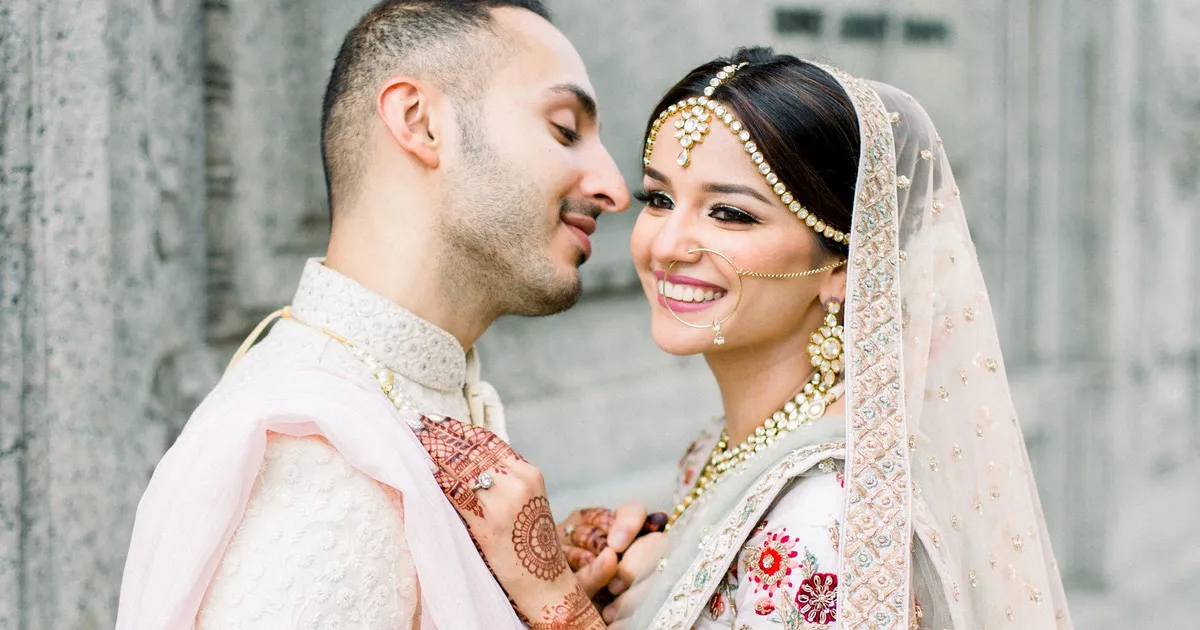What is the importance of Marriage Registration in India?
6 minuteRead

Even though marriage registration is not taken seriously in India, it is one of the most important things to do after the rituals and parties have concluded. Apart from providing security to both partners, marriage registration makes life a lot easier in a country where rules change at the drop of a hat. While it is not yet mandatory in India, the Law Commission has recommended to the government that marriage registration be made mandatory within 30 days, with a fine of Rs. 5 per day after that. So don't put off registering your marriage in India any longer.
A marriage certificate is a document issued by the registrar (Civil) that certifies the act of marriage as well as the date, place, and time. The certificate is required as proof of legal marriage and is required by a directive of the Honourable Supreme Court dated 14.02.2006, regardless of religion, caste, or creed. Unregistered marriages are considered a crime and are punishable by law. The Supreme Court also recommends that marriages be registered under the HMA or the Special Marriage Act. Unregistered marriages are not illegitimate, but every Indian citizen is required to register their marriages.
The advantages of a registered marriage in India are as follows:
- If a spouse is working abroad and wishes to accompany his or her partner, a marriage certificate is required. In the absence of a marriage certificate, foreign embassies refuse to issue a work permit.
- Legal proceedings in the case of property succession to a spouse are simple
- A marriage certificate is required by the court for the transfer of property or the custody of children in the event of a legal separation.
- After the dissolution of the first marriage, a person can enter into a matrimonial alliance for the second time.
- Foreign embassies in India and abroad do not recognise traditional marriages. A marriage certificate is required to prove marriage in embassies.
- It will be useful in claiming a family pension, bank deposits, or life insurance benefits if the depositee or Insurer dies without a nomination or otherwise.
- A Marriage Certificate is also required if you want to change your maiden name, among other things.
- A certificate of marriage registration protects against the wedding being denounced by any one spouse.
Does religion matter while registering your wedding?
Currently, there are two legislations that fall under the Marriage Registration Laws, depending on your religion: The Hindu Marriage Act, 1955, and The Special Marriage Act, 1954.
Their marriage will be registered under The Hindu Marriage Act if both partners are Hindu, Sikh, Jain, or Buddhist. If one of the partners is Muslim, Christian, Parsi, or Jewish, their marriage must be registered under the Special Marriage Act. Even though registering under any of these Acts has no effect on the validity of marriage, the registration process may differ.
If your partner is of a different nationality, the Special Marriage Act applies to them. They must submit an additional No Impediment Certificate/NOC from the relevant Embassy, along with their visa details, within 30 days of getting married, or their passport will be impounded or revoked.
Both partners must apply to the Sub-Registrar under whose jurisdiction the marriage was solemnised, or to the Registrar under whose jurisdiction either of the partners has resided for more than six months, under the Hindu Marriage Act. The Special Marriage Act, on the other hand, requires both partners to provide a 30-day notice to the Sub-Registrar in whose jurisdiction at least one of the partners has resided. This notice is then posted on the Sub-office Registrar's bulletin board for 30 days, and a copy is sent to the other Sub-Registrar if either of the partners lives in another Sub-jurisdiction. If there are no objections to the marriage within 30 days, it is then registered with the Marriage Registrar.
What is the difference between a Court Marriage and Marriage Registration?
Despite the fact that the process remains the same, court marriages are solemnised in court in front of officials, particularly under the Special Marriage Act. In order to register a marriage, the applicants must show proof of a previously solemnised wedding that the groom and bride want to legally register.
International Affairs
If you want to travel a lot around the world, getting married officially can make dealing with legal stuff easier. This can help you get a visa to stay with your spouse, become a citizen in another country, or handle official things in other countries more smoothly. In simple words, being officially married can be really helpful.
The Simple Process
The nice thing is that getting your marriage officially recognized in India isn't as hard as it might seem. The steps are pretty simple and might be a bit different depending on where you live. Basically, you just need to fill out a form for marriage registration and give some important papers like ID proofs, address proofs, wedding invitation, and photos. After they check your application and say it's okay, they'll give you a marriage certificate. This certificate is important because it gives you all the good stuff we talked about.
What are the legal aspects to keep in mind when registering a marriage in India?
The couple must fill out the marriage application form, which must be accompanied by the following documents: – The couple's age.
– Identification as proof of residency (Aadhar Card, Voter ID, Ration Card or Driving License).
– An affidavit stating the place and date of marriage, marital status at the time of marriage, and the dates of birth and nationalities of both parties.
– Two to three passport-sized photos
– A copy of the divorce decree in the case of a divorcee, and the death certificate of the spouse in the case of a widow/widower.
– A signed certificate from the priest who officiated at the wedding.
– Conversion certificate, if applicable
– If available, a wedding invitation card
– Affirmation that the parties are not related to each other in a prohibited degree of relationship as defined by the Hindu Marriage Act or the Special Marriage Act.
The form must be signed by both the bride and groom for a fee of Rs 500-1000, depending on the state. The documents are then attested by a Gazetted Officer. Apart from that, the first condition is that both parties must have given free consent, which means that neither partner must be of unsound mind or be forced to make the decision.
Following verification of all documents submitted by the couple, a date for registration is set, which is approximately 15 days later under the Hindu Marriage Act, and 60 days later under the Special Marriage Act. The couple, the Gazetted Officer, three witnesses, and their documents must be physically present before the Marriage Registrar on the day of the appointment.
Can you register your marriage online?
The form must be signed by both the bride and groom for a fee of Rs 500-1000, depending on the state. The documents are then attested by a Gazetted Officer. Apart from that, the first condition is that both parties must have given free consent, which means that neither partner must be of unsound mind or be forced to make the decision. Following verification of all documents submitted by the couple, a date for registration is set, which is approximately 15 days later under the Hindu Marriage Act.
Is there a ‘Tatkal’ marriage registration?
Marriage registration certificates, like passports and train tickets, can now be obtained with a single-day authorization only in Delhi. It allows you and your partner to register your marriage and obtain a certificate within 24 hours by paying a fee of 10,000 INR.
What happens if the authorities refuse to solemnize the marriage?
In such cases, the couple has thirty days from the date of refusal to file an appeal with the District Court, which has jurisdiction over the marriage officer's office.
Here are the five steps involved in registering your marriage in court:
- A notice of intended marriage must be served on the Sub-Registrar of the district in which at least one of the parties to the marriage has lived for at least six months.
- The Sub-Registrar shall publish/post a copy of the notice inviting objections, if any, in a visible location.
- Following the expiration of the 30-day notice period, a date is set for the registration of marriage, unless any person objects.
- The couple signs the marriage application form in the presence of both the Marriage Registrar and the Gazetted Officer to solemnise their marriage, as well as three witnesses declaring their free consent, at the specified marriage office.
- The details will be entered into the marriage register by your Marriage Registrar, and the marriage certificate will be issued the same day, with the signatures of both partners and witnesses.
Myth busted: Even if your marriage isn't registered in India, you're not legally single.
If you haven't registered your marriage with the court, you must still go through the same legal divorce procedures to legally separate from your partner. The Indian government recognises all marriages performed in accordance with religious rituals and ceremonies.
Write, Record and Answer! Consume Unlimited Content! All you need to do is sign in and its absolutely free!
Continue with one click!!By signing up, you agree to our Terms and Conditions and Privacy Policy.











